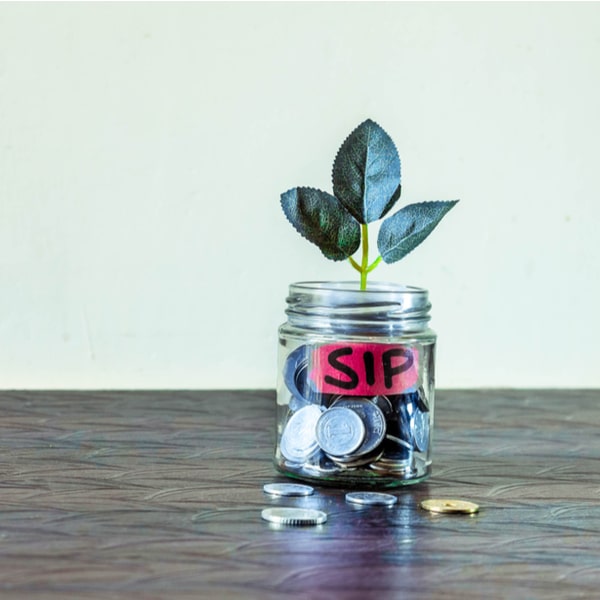5 Ways to Rein in Financial Anxiety During Covid-19 Lockdown
Today, almost everyone across the world is talking about how we are witnessing unprecedented times with coronavirus ripping through most of the countries in the world, locking down all economic activity and pretty much amping up all possible fears. This is a time which has all the elements to cause anxiety to the strongest amongst us – being cooped up indoors, fewer distractions, no social contact, fear of mortality, uncertainty about when life can resume to the normal that we are now used to. In all of this, one of the elements which I aim to address today is how to rein in financial anxiety during Covid-19 lockdown.
Financial anxiety is the fear and uncertainty regarding personal outcomes in that domain. Considering the level of stress that the economy is under and the topsy turvy way in which the markets (debt and equity) have reacted, we are all pretty aware that it will take some time to get back on track.
How long will that take? Will there be some repercussion or impact on us personally? These are some of the concerns hounding quite a few of us. Financial anxiety is a real thing and it can often snowball into major stress triggering off even more health concerns that we can all do without. However, there are a few measures you can take to put your mind at ease:
1. Check on your emergency fund

An emergency fund is one of the key measures to doing your financial planning right, as it cushions unforeseen requirements while ensuring you do not end up cashing in from investments for the long term. This situation, if anything brings that necessity at the forefront. This is a good time to take stock of your fixed monthly expenses as a household and ensure that a tleast 6 months worth are saved up in a safe financial instrument.
In fact, if you have any concerns on future cash flows, take it up a notch and build a cushion for 12 months’ worth of fixed expenses. This is a good rule for small businesses as well. Most of them will take a hit while having to make fixed expenses like employee salaries. Keep enough cash in hand for six weak months to not suffer any sleepless nights at such times.
2. Cover your health risk

If you do not have health insurance and neither is your employer covering you for coronavirus, then check some of the specific fairly priced insurance policies that some providers have now introduced. For instance, Digit was one of the first few providers to come out with a coronavirus coverage. The best part is that it is completely digital making it easy enough to buy even under lockdown.
However, it is valid only if you have not had any respiratory issues for the last four weeks and with a waiting period of 15 days. While this recommendation covers you only for this specific risk, in case of financial dependents, use this time of fear to make a prudent decision of getting a term life insurance as well as a generic health insurance policy.
3. Link your investments to specific goals

The problem with most investors is that they go for mutual funds without really thinking of what, why or when. To this end, goal based investing is really the best way to go about it. Not only will it align you to the long term when it comes to equities, it gives a method to the madness.
Remember, if you don’t have a target, how do you know if you even hit bull’s eye? While situations like this force us to face up to our fears and often end up in us looking at the immediate future, it is only with tagging our investments to financial goals that we can safeguard ourselves from making decisions based purely in the short term.
4. Do not look at your existing portfolio

In these times, quite a few well-meaning experts recommend rebalancing the portfolio, especially to take advantage of the cheaper equities. However, if you look at the value of your investments today even to rebalance, depending on when you have invested, all you might see are big red drops in value.
While we try to kid ourselves that we are rational creatures, most often emotions rule the roost. You could end up making decisions of selling at much lower prices, that you end up regretting. So, for the time being, just hold on and do not look at the value of your existing portfolio. There is a good reason why ostriches have survived for millennia and not looking at bad news can help us survive better too. After all, patience is a virtue in stock markets.
5. Invert the fear

Mind you, this suggestion comes with a lot of ifs and buts and terms and conditions. If you have stable future cash flows, a buffered up emergency fund, long pitless time horizon and a pocket marked amount of money to invest, then and then alone invert the fear to see this period as an opportunity.
Buy some strong company stocks or ideally some well-proven good mutual funds which again have lower NAVs today, including large cap oriented categories which generally trade at a premium. There again, make a decision on the funds and then deploy the money in tranches through STP or Systematic Transfer plan over the next few months to have a higher probability of low average purchase prices.
Taking this possible downtime resulting from the lockdown to take proactive measures will go a long way to abate your anxiety. It is one of those times where we can either wilt under the pressure or come out stronger than we were going in. Let’s all strive towards the latter.
Insightful article, I feel that not looking into our existing portfolio will help keep the stress at bay, because you know the bears are taking over the markets. Helpful.